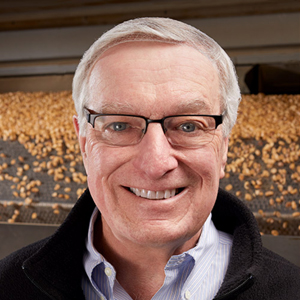By Billy Baker
EVERETT, Mass. (Boston Globe) — The second week of March began just as many before it at Leavitt Corp. Peanuts and salt came in the door. Jars of Teddie Peanut Butter went out.
Then, seemingly overnight, the coronavirus pandemic changed everything. By the time Friday the 13th rolled around, the world outside the peanut butter factory was shutting down, retreating into isolation to stop the spread of the deadly virus. But inside the factory, under the iconic red sign and its dancing bear, Teddie’s employees were fighting to keep up with a peanut butter panic that had swept the nation and emptied supermarket shelves.
The plant kept running over the weekend. The supply chain went on red alert. Strict safety measures were put in place. Truckloads of peanuts traveled from the mid-Atlantic to Everett. And this 90-year-old regional brand, so beloved it borders on having a cult following — many people argue you can’t make a proper fluffernutter without it — accomplished the implausible in what felt like an instant: They tripled production.
Toilet paper and hand sanitizer have hoarded the hoarding headlines, but peanut butter has been close behind, with many stores forced to ration how many jars can be purchased at one time.
And so as health care workers lead the fight from the front, Teddie has been one of the unsung companies fortifying the rear, its employees drafted into a Rosie the Riveter role to fortify the supply lines that will help keep people at home.









